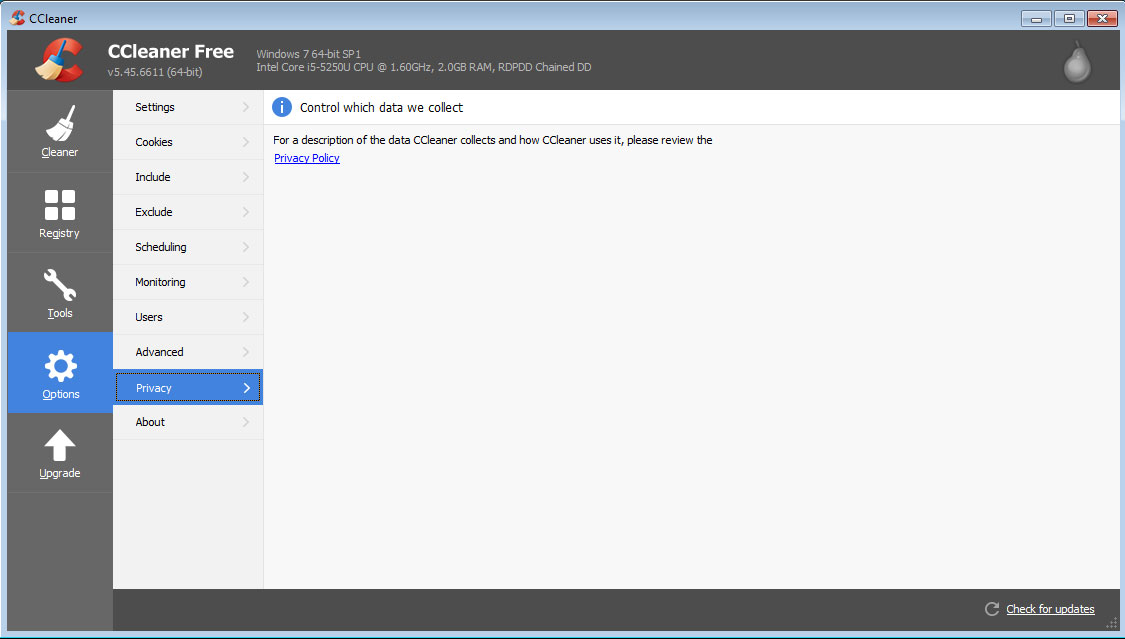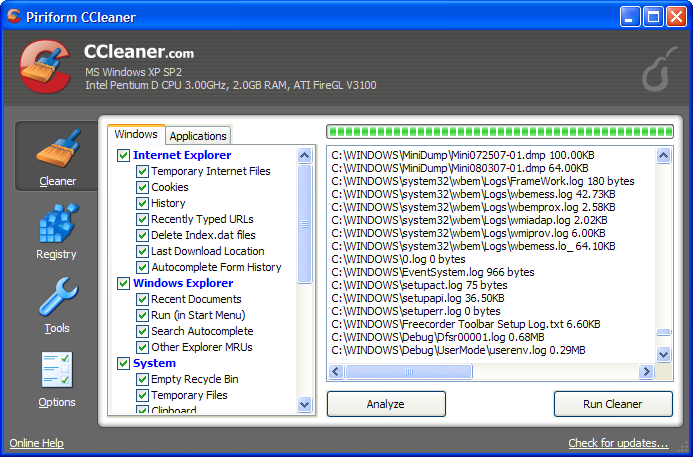

- #CCLEANER OSX FORENSICS LOG HOW TO#
- #CCLEANER OSX FORENSICS LOG MAC#
- #CCLEANER OSX FORENSICS LOG WINDOWS#
Also shows the number of users logged on, remember this is usually going to be one.Shows uptime of the system at the point in which the daily.out entry is written.grep -E -e "\w" -e "Local system status" -e "load averages" daily.outĪs you can see we can pull some interesting information about computer and account usage:
#CCLEANER OSX FORENSICS LOG WINDOWS#
Tags CCleaner Malware computer forensics cyber forensics DFIR digital forensics digital investigations malware analysis malware forensics Richard Davis windows forensics. We extracted the lines only containing the dates, followed by the lines which related specifically to disk usage. Richard Davis has posted a fresh video discussing the CCleaner malware incident reported by Cisco’s Talos Intelligence Group on Monday, September 18, 2017. System/Library/LaunchDaemons/-*****.plistĪfter reviewing the content of this file, it made me consider how this might assist in some of my casework? Disk Usageįirstly, I borrowed some grep skills from a very knowledgeable and tall colleague on my team to see if we could parse out just some specific information from the daily.out file. This act further protects your privacy by keeping your identity safe from potential theft. This paper could be divided into the following sections. CCleaner also deletes your cookies, log files, system caches, browsing history, memory dumps, recycle bin, application data, file fragments, and autocomplete from history. It seems like this log record all the login history,include failing ones. You'll see something like AuthenticationAllowed completed: record 'xx', result: Success (0). There are well-defined procedures to extract and analyze data from IOS devices which are included in this paper. 2.Expand the /var/log/ on the left panel. I also reviewed the weekly.out and monthly.out files but these were, in my case, far less granular.Īt a high level daily.out contains information relating to disk usage and networking, this file is written at least daily and the configurations for all three of the periodic logs are stored in plist files in the following location: From the forensics perspective, such devices could present lots of useful artifacts during the investigation. I had previously given little credence to this log but realised it can be used to determine a whole wealth of useful information. I’m sure this isn’t new to most practised Unix beards but for those who aren’t aware, there’s a really great little log file called daily.out in /var/log.

I’ve spent a little bit of time digging through the log files on my MacBook (Mojave 10.14.2).
#CCLEANER OSX FORENSICS LOG MAC#
I recently attended the awesome SANS DFIR, Mac and iOS Forensics and Incident Response course with Sarah Edwards.
#CCLEANER OSX FORENSICS LOG HOW TO#
This has obviously given me lots of great inspiration on how to negotiate Mac analysis in general and to take a closer look at some of those system files that we covered in training. Mac Forensics DFIR, Digital Forensics, Mac Forensics, Periodic Logs 1 Comment Overview.



 0 kommentar(er)
0 kommentar(er)
